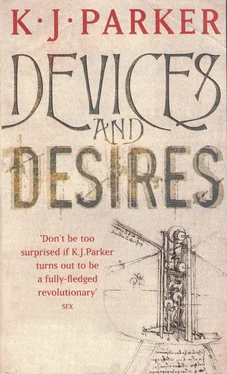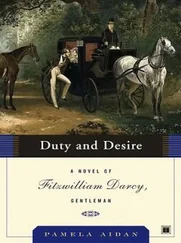K Parker - Devices and Desires
Здесь есть возможность читать онлайн «K Parker - Devices and Desires» весь текст электронной книги совершенно бесплатно (целиком полную версию без сокращений). В некоторых случаях можно слушать аудио, скачать через торрент в формате fb2 и присутствует краткое содержание. Жанр: Фэнтези, на английском языке. Описание произведения, (предисловие) а так же отзывы посетителей доступны на портале библиотеки ЛибКат.
- Название:Devices and Desires
- Автор:
- Жанр:
- Год:неизвестен
- ISBN:нет данных
- Рейтинг книги:3 / 5. Голосов: 1
-
Избранное:Добавить в избранное
- Отзывы:
-
Ваша оценка:
- 60
- 1
- 2
- 3
- 4
- 5
Devices and Desires: краткое содержание, описание и аннотация
Предлагаем к чтению аннотацию, описание, краткое содержание или предисловие (зависит от того, что написал сам автор книги «Devices and Desires»). Если вы не нашли необходимую информацию о книге — напишите в комментариях, мы постараемся отыскать её.
Devices and Desires — читать онлайн бесплатно полную книгу (весь текст) целиком
Ниже представлен текст книги, разбитый по страницам. Система сохранения места последней прочитанной страницы, позволяет с удобством читать онлайн бесплатно книгу «Devices and Desires», без необходимости каждый раз заново искать на чём Вы остановились. Поставьте закладку, и сможете в любой момент перейти на страницу, на которой закончили чтение.
Интервал:
Закладка:
'Bolt out of the blue, literally,' Licinius said. 'No warning, no demands, nothing. Just a report from our ambassador, not even formal notification from the Court-which we're entitled to, incidentally, under the terms of the treaty.'
'Which daughter?' Valens said.
'What? Oh, right. I'm not absolutely sure. I think it was number five; which'd make sense, because they've got rules over there about the order princesses get married in. But if it was number six, the effect'd still be the same. Now I'm not saying it was meant as a deliberate provocation or an act of war, but-'
'Can you find out?' Valens said. 'Which one it was, I mean.'
'Yes, all right. But like I said, it's not really important. What matters is, Sirupat has effectively rejected our claim-some might say the treaty itself-in favour of some nobody who just happens to be a poor relation. In basic diplomatic terms-'
'Find out which one,' Valens cut him off. 'Quickly as possible, please.'
He could see Licinius getting flustered, thinking he hadn't got across the true magnitude of the political situation. 'I will, yes. But if you're thinking that's all right, I'll just marry number six, I've got to tell you that'd be a grave miscalculation. You see, under their constitution-'
'Find out,' Valens said, raising his voice just a little, 'and as soon as you hear, let me know. All right?'
'I've already said yes.'
'That's splendid.' Valens took a deep breath. 'That'll have to do as far as the briefing goes, we can't keep all the guests waiting.'
Licinius had his answer within the hour. Yes, it was the fifth daughter, Veatriz, who'd married Count Orsea. Licinius' scribbled note reached Valens at the dinner-table, where he was sandwiched in between the Patriarchal legate (a serene old man who dribbled soup) and a high-ranking Mezentine commercial attache. Consequently, he read the note quickly, tucked it into his sleeve and carried on talking to the legate about the best way to blanch chicory.
The next day, for the first time since his father's accident, he announced a hunt. Since everybody was unprepared and out of practice, it would be a simple, perfunctory affair. They would draw the home coverts in the morning, and drive down the mill-stream in the afternoon. The announcement caused some surprise-people had got the impression from somewhere that the new Duke wasn't keen on hunting-and a great deal of anxious preparation and last-minute dashing about in stables, kennels and tack rooms. Any annoyance, however, was easily outweighed by relief that things were getting back to normal.
Chapter Two
'The prisoner has suggested,' the advocate said, 'that his offence is trivial. Let us examine his claim. Let us reflect on what is trivial and what is serious, and see if we can come to a better understanding of these concepts.'
He was a nondescript man, by any standards; a little under medium height, bald, with tufts of white hair over each ear; a round man, sedentary, with bright brown eyes. Ziani had known him for years, from committees and receptions and factory visits, had met his wife twice and his daughter once. From those meetings he'd carried away a mental image of a loud, high voice, someone brisk and busy but polite enough, an important man who knew the strategic value of being pleasant to subordinate colleagues. He knew he was some kind of high Guild official, but today was the first time he'd found out what Lodoico Sphrantzes actually did.
'The prisoner, Ziani Vaatzes,' the advocate went on, 'admits to having created an abomination. He admitted as much to the investigator who inspected it. He signed a deposition confessing that the thing was made by him, and agreeing in detail the departures from Specification. In this court, he has acknowledged his signature on that deposition, and conceded that he said those words to that investigator. But he stands to his defence. He pleads not guilty. His defence…' Advocate Sphrantzes paused to shake his head. 'His defence is that his admitted abomination was only a little one, a minor deviation. It was, he tells us, a slight modification, an improvement.'
A little buzz of murmuring went round the semicircle of the public gallery, like half a ripple from a stone dropped in water. Sphrantzes let it run its course before he went-on.
'Very well then,' he said. 'Let us consider the details. As regards the construction of automata and mechanical toys, Specification states that the lifting mechanism for the. arms shall be powered by a clock-spring seven feet six inches long, one quarter of an inch wide and fifteen thousandths of an inch thick, with a generous permitted tolerance of three per cent for length and width, and fifteen per cent for thickness. Furthermore, it states that the gear train conveying motive power from the spring to the shoulder assemblies shall comprise five cogs of ratios forty, thirty, twenty-five, twelve and six to one. Furthermore, it lays down that the thickness of such cogs shall be three eighths of an inch, and that each cog shall ride on a brass bushing. I ask the clerk to verify that my summary of Specification is correct.'
The clerk stood up, nodded and sat down again.
'So much, then,' Sphrantzes went on, 'for Specification. Let us now turn to the investigator's report concerning the abomination created by the prisoner. Investigator Manin, as you have heard for yourselves, discovered that the spring used by the prisoner was nine feet three inches long, five sixteenths of an inch wide and ten thousandths of an inch thick; that the gear train contained not five but six cogs, the sixth being in ratio of four to one; that the said cogs were seven sixteenths of an inch thick, and their bushings were not brass but bronze. In short, we have unequivocal proof of not one but three distinct and deliberate deviations from Specification.'
Advocate Sphrantzes paused for a moment to stare ferociously at the dock; then he continued. 'Three distinct deviations; so much, I think we can safely say, for the argument that it was only a little abomination, a trivial departure. Now, if the prisoner had argued that he is an inept metalworker, incapable of observing a tolerance, that might be easier to accept-except, of course, that we know he is no such thing. On the contrary; we know that he holds the rank of supervisor in the Foundrymen's and Machinists' Guild, that he has passed all twelve of the prescribed trade tests and holds no fewer than eleven certificates for exemplary work, one of them for hand-filing a perfect circle to a tolerance of one thousandth of an inch. But he makes no such claim in his defence. No; he admits the work, and accepts the report. He accepts that each deviation bears directly on the others; that the longer, thinner spring affords more power to the gears, in consequence of which a sixth gear is added and the width of the cogs is increased to augment bearing surface, with harder-wearing bushes to handle the additional wear. All this, he claims, he did in order to make a mechanical toy that could raise its arms above its head; in order, members of the committee, to improve on Specification.'
No murmurs this time. Absolute silence.
'To improve,' Sphrantzes repeated slowly, 'on Specification. May I invite you to consider for a moment the implications of that intention.
'When our Guild was first established, fought for by our ancestors and paid for with their very blood, it was agreed that in order to maintain the reputation for excellence enjoyed by our work throughout the world, it was essential that we draw up and rigidly adhere to an agreed specification for every thing we make.' That specification, represented by the Guild's mark stamped on each piece, has for three hundred years served as an unimpeachable guarantee of quality. It means that anybody who buys Guild work can be categorically assured that the piece is made strictly in accordance with the best possible design, from the best possible materials, using the best possible practices and procedures by the finest craftsmen in the world. It is that guarantee that has made our Guild and our fellow Guilds throughout Mezentia the unrivalled masters of industry and by default given us a monopoly of mass-produced manufactured goods throughout the known world. That, members of the committee, is not a trivial matter. On the contrary, it is the life blood of our city and our people, and any offence against it, anything that calls it into question, is an act of treason. There can be no exceptions. Even an unwitting slip of the hammer or the file is an abomination and punishable under the law. How much worse, then, is a deliberate and premeditated assault on Specification, such as we have seen in this case? To claim, as the prisoner Vaatzes has done, that his abomination represents an improvement is to assert that Specification is susceptible to being improved upon; that it is fallible, imperfect; that the Guilds and the Eternal Republic are capable of producing and offering for sale imperfect goods. Members of the committee, I tell you that there can be no defence of such a wicked act.'
Читать дальшеИнтервал:
Закладка:
Похожие книги на «Devices and Desires»
Представляем Вашему вниманию похожие книги на «Devices and Desires» списком для выбора. Мы отобрали схожую по названию и смыслу литературу в надежде предоставить читателям больше вариантов отыскать новые, интересные, ещё непрочитанные произведения.
Обсуждение, отзывы о книге «Devices and Desires» и просто собственные мнения читателей. Оставьте ваши комментарии, напишите, что Вы думаете о произведении, его смысле или главных героях. Укажите что конкретно понравилось, а что нет, и почему Вы так считаете.












